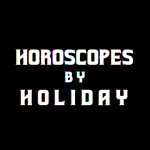Q. Please settle an argument. My position is that one "sees the sights," not the "sites." Thus, it's "sightseeing," not "siteseeing." — Steve Civitello, Middletown, Connecticut
A. Steve, I cite you for your sharp insight. It's true that some of the sights you see while touring might also be sites, i.e., places where something occurred, such as the site of a historic battle between you and the advocate of "siteseeing." But the sights seen by sightseers could also include events, such as the Northern Lights or the running of the bulls, that aren't "sites." So, you win this ex-"site"ing argument.
Q. If a person "tamps down" the loose dirt, isn't the word "down" redundant? — J. A. Gillerlain, Cherry Hill, New Jersey
A. No. "Tamp" usually means "push down," but it can also mean "push in," as in "Tamp that loose dynamite into the hole above your head" (though I doubt someone hearing that instruction would be focusing on the fine points of word usage at that particular moment).
Q. Which is correct: "myriad problems exist" or "a myriad of problems exists"? — Charles F. Gritzner, Brookings, South Dakota
A. Both are correct. "Myriad" may be used as an adjective ("myriad problems") or as a noun ("a myriad of problems"). (By the way, I'm also conducting a one-man campaign to certify its use as a verb, but I won't myriad you with all the details.)
Q. Where did the term "good skate" (to describe a good person) originate? — Doris Fash, Southington, Connecticut
A. Experts pooh-pooh the theory that this term has anything to do with roller skates or ice skates. In fact, they say it comes from poo-poo. The Old Norse word for "dung" was "skita," and this became the dialectical "skite" in English, meaning a contemptible person. Over time, the negative connotations of "skite" (later "skate") were flushed away and "skate" came to mean any "fellow" or "person."
Q. To say "He only golfs on Fridays" seems to convey the idea that "golfing on Friday" is all he does that day. Wouldn't the correct usage be "He golfs only on Fridays"? Or am I just splitting hairs? — Conner L. Dunn, Olive Branch, Mississippi
A. No, you're not just splitting hairs. The placement of "only" can make a big difference in meaning. The classic song lyric "I only have eyes for you," for instance, indicates that all I have for you is my eyeballs (ick!), while "I have eyes for only you" conveys the intended meaning, i.e., I look at no one else. May a laurel wreath rest on your unsplit hair for advocating the precise placement of "only."
Rob Kyff, a teacher and writer in West Hartford, Connecticut, invites your language sightings. Send your reports of misuse and abuse, as well as examples of good writing, via email to [email protected] or by regular mail to Rob Kyff, Creators Syndicate, 737 3rd Street, Hermosa Beach, CA 90254.
Photo credit: RyanMcGuire at Pixabay






View Comments